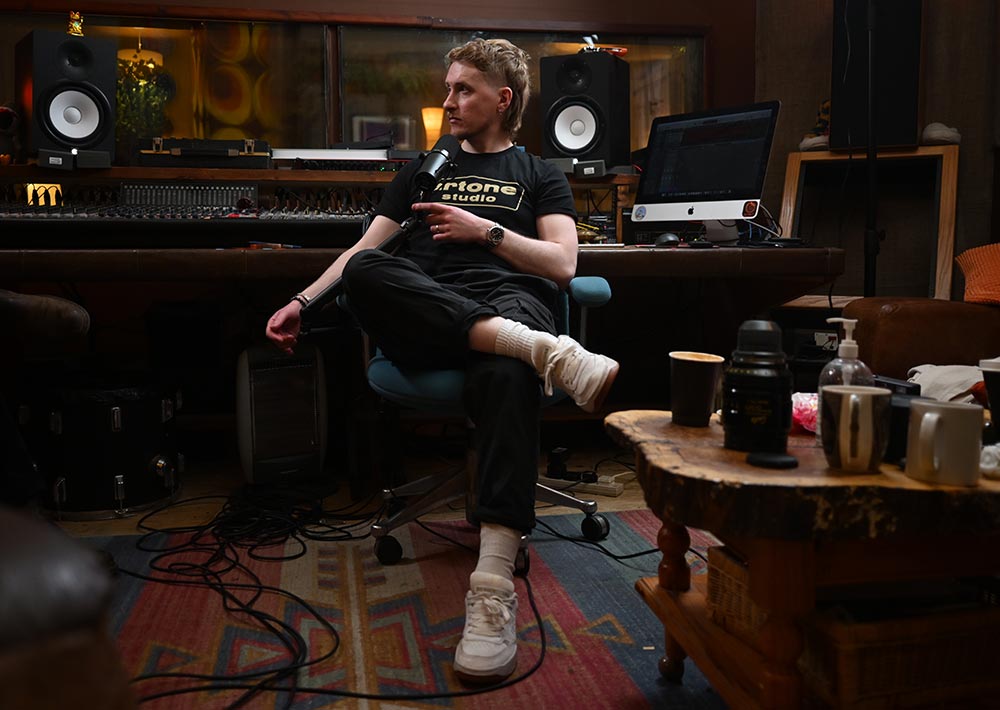
Skip Curtis: “It’s not purely a numbers game, but the more you release, the better your songs become.”
Owen Gurry and Skip Curtis share the lessons, creative habits, and industry awareness needed to thrive in the sync arena
Skip Curtis is a songwriter, record producer and music supervisor from south Wales. He established the band XY&O, whose debut single Low Tide became a Top 10 hit in Spotify’s viral chart. His music has also been used in the Netflix series Maid and in The Sims video game franchise. As a music supervisor, Skip has worked on a range of films and TV shows with Netflix, The BFI, Google, CBS, S4C and Disney, among others.
Owen Gurry is a session guitarist and composer from Pembrokeshire, Wales. As a guitarist, he’s best known for his work on feature films including AAA properties like Blade Runner 2049 and The Flash. As a composer, he has a large portfolio of tracks that are used on broadcasts of all types, all over the world. He also has credits on a number of Grammy-nominated projects.
Here, Curtis and Gurry share their insights on careers in sync…
More expert advice on writing for Film & TV
BREAKING IN
Owen Gurry: After earning degrees in psychology and neuropsychology, I worked as a session guitarist before breaking into composing by relentlessly knocking on production company doors, leading to work like producing BBC Radio 1’s weekend jingles. It took a lot of grit to physically get in front of the right people, gain their trust and then get into composing, but the library and publisher models of today didn’t exist when I was starting out.
Skip Curtis: Establishing XY&O boosted my profile and eventually inspired me to launch Double L Sound, a sync-focused venture connecting Welsh talent with the global screen industry. What’s key is doing your research and finding out who the decision-makers are – that’s exactly what I did. Find the best publishers for your music, the best sync agents, the libraries, and who the music supervisors are who work on TV and adverts.
OG: In 2010, a fortuitous phone call opened the door to my first Hollywood project – the start of a run that would eventually include 20 blockbusters, including Bladerunner 2049 (music by Benjamin Wallfisch and Hans Zimmer). One day, out of the blue, I got a phone call from a movie composer who’d found my website. I remember him saying, ‘I need some music for a scene in a movie.’ I genuinely thought it was a joke! He said: ‘I’ve got a meeting in an hour; can you pull something together for me?!’
SC: It’s unlikely that you’d recommend someone aim for a career in sync, because what makes a song sync-worthy is the same as what makes a song successful – commercially or critically. For me, someone should get into songwriting because they want to be a songwriter. Some of the biggest sync deals ever have been for the best commercial songs, so one begets the other.
VOLUME AND PERSISTENCE
OG: Success comes from creating a high volume of quality tracks. I can’t pretend sync libraries aren’t oversaturated. You need a large amount of quality tracks that are broadcast-ready. It’s also important to accept that sync isn’t something that comes with instant success. It can take 18 months to 3 years before you reach a tipping point and the royalties start coming in. In that time, you should be paying close attention to cultural trends and producing more.
SC: The larger the catalogue, the greater the chance of success. That said, there are also examples of people having released just one album and having loads of syncs from it. So it’s not purely a numbers game, but the more you release, the better your songs become. The volume of songs being uploaded is impossible to keep up with, so visibility is important.
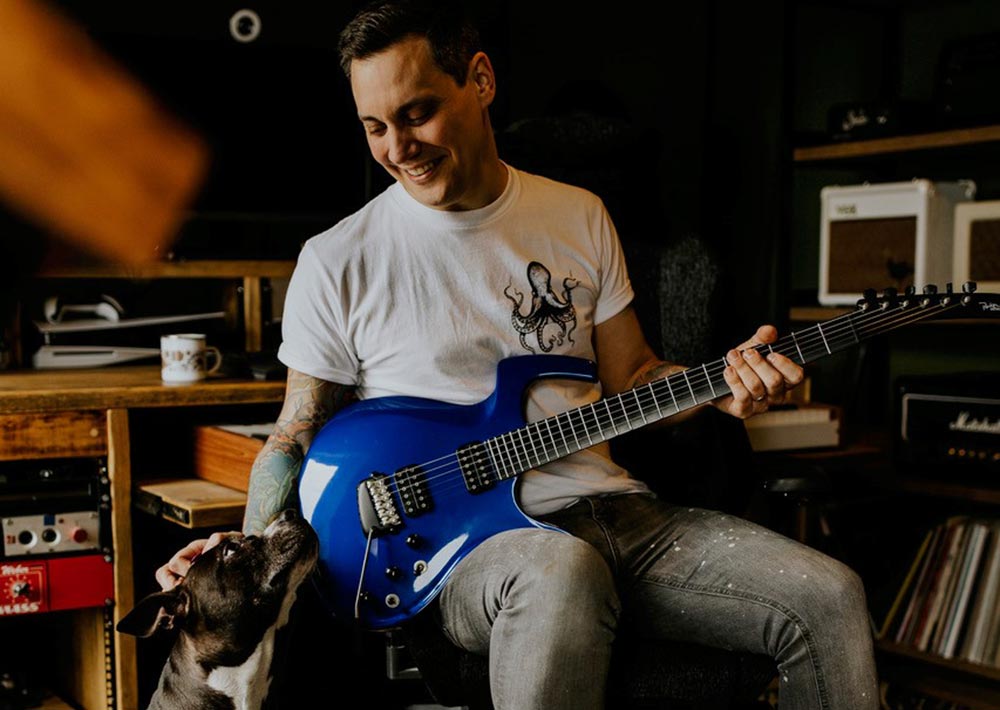
Owen Gurry: “You need a large amount of quality tracks that are broadcast-ready. It’s also important to accept that sync isn’t something that comes with instant success.”
ANATOMY OF A SYNC WRITER
OG: I write upwards of 100 pieces of music a year. As a composer, the bitter pill to swallow is that an excellently-produced but mediocre track will often do better than an outstanding compositional idea. The good news is that the entry point is relatively accessible. Someone starting out can have some fairly standard kit: a laptop, headphones, and decent software. That’s what I started with, in my small London flat. That said, you can scale up to hundreds of thousands on your rig, it never stops! While some people will carve out a specialist area, others will be a jack of all trades.
SC: Recording quality is huge. A good sync writer must also be highly organised in terms of having their data all logged appropriately. The importance of writing lyrics with strong imagery can’t be underestimated. When directors send briefs to music supervisors, often they’re lyrically based. You don’t necessarily have to be Leonard Cohen, but writing lyrics with strong imagery is a brilliant skill. For example, they might say, “We want a song that talks about ‘going home’ or ‘friendship.’” If your lyrics are ambiguous or too personal, you might miss getting pitched for those briefs. You sometimes have to accept you won’t always be writing your favourite music – it’s about responding to trends. So whether that’s music for kids’ TV shows or full orchestral pieces, you need to be adaptable and have a really good ear for media.
THE SYNC ECONOMY
OG: With the library model, there’s rarely any upfront revenue. I’d recommend that a composer always has a collection of finished themed tracks up their sleeve to pitch to a library publisher, most of which can be sourced on the PRS website. I noticed around the time of the release of Bridgerton, that people wanted real musicians and string quartet music, so I was developing tracks with that in mind. Most libraries won’t turn down a solid, ready-to-use collection.
IMPLICATIONS OF AI
SC: I don’t use AI tools in songwriting. To me, part of the joy of being a songwriter is the challenge of making words fit. AI doesn’t fill me with joy as it’s obliterated the playing field; I’m thankful I have other things that I do in music. There’s also a flipside, though. As a music supervisor, AI can analyse thousands of pieces of music instantly, which is incredibly useful.
OG: Of course, AI is shifting the landscape, but we’ve been having these conversations for years now. Fundamentally, I don’t trust the characters who are selling it or their vision. The tools simply aren’t delivering. At a basic level, it’s expensive to build and maintain AI infrastructure. So even if AI tools develop to be as good as a real composer, the real composer will still be cheaper.
CAREERS BEYOND LONDON
SC: Unless you want to be a major-label recording artist, then yes, absolutely, you can do it from Wales or anywhere. We obviously have a strong TV and film industry in Wales, and bodies like Creative Wales give really good support for songwriters. Having a creative arm of the government like we do, focusing on educating people and giving opportunities, makes Wales a brilliant place to have a sync career.
OG: There’s something special about Wales; we have so much talent and enthusiasm, though a bit more confidence wouldn’t hurt. I’ve lived all over the UK and in Europe, with clients everywhere from London to LA, but I just needed a strong internet connection. Too often, the grind is glamorised. I want young people from Wales to see that they can thrive in a creative career from where they are. There’s also strong political support for the creative industries in Wales, through Creative Wales, which reflects the global success Welsh creatives are achieving in areas like sync.
For more on Owen Gurry and Skip Curtis’s work, visit owengurry.com and skipcurtis.com. To see how Creative Wales supports the sector, explore creative.wales
More expert advice on writing for Film & TV

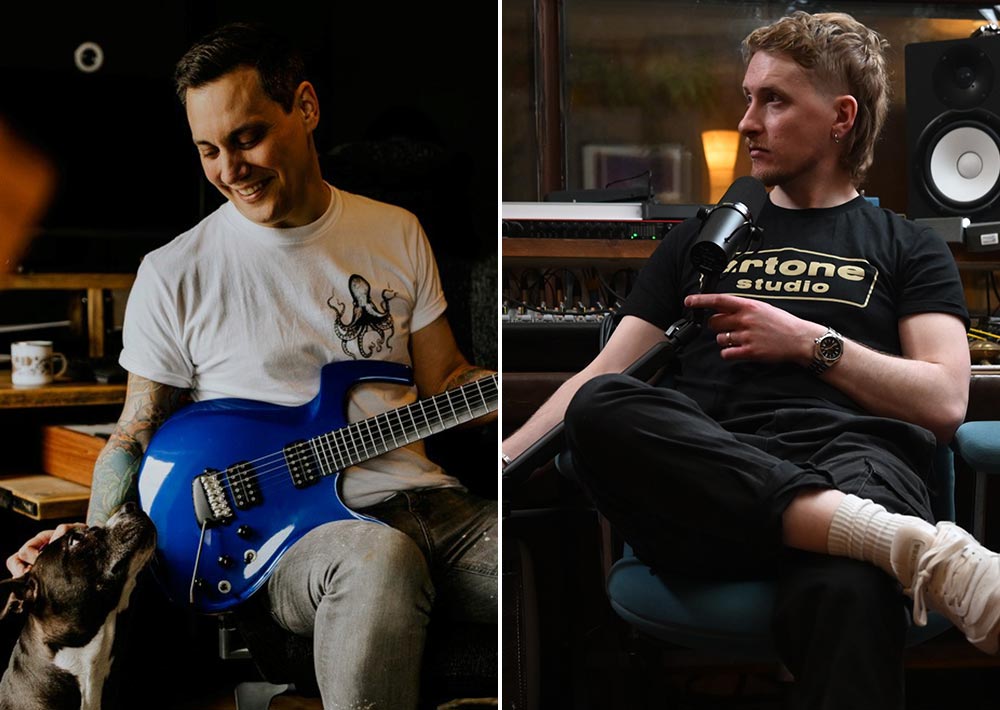


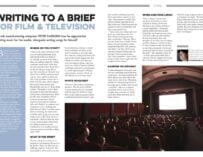





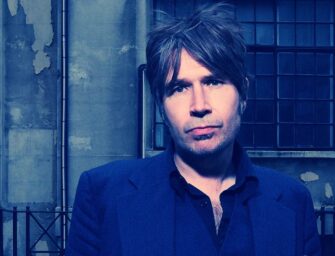

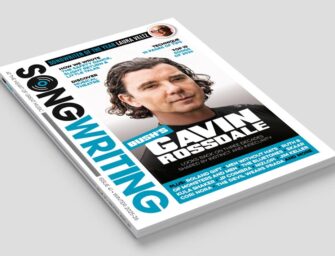




















Related Articles